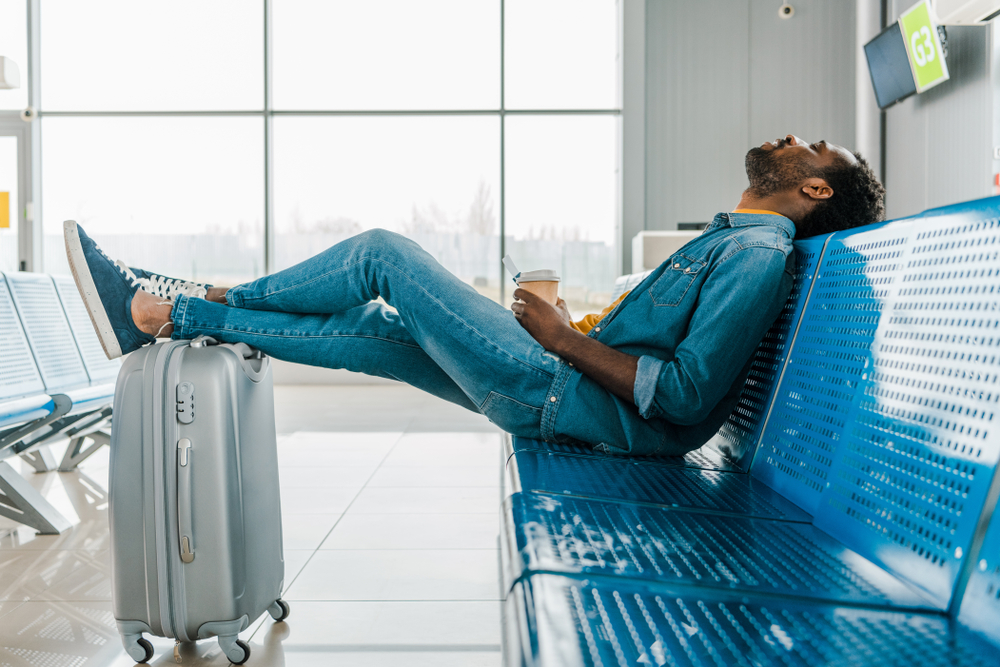For many, the aroma of a fresh cup of coffee signals the start of a productive day. But for others, sipping on coffee late at night doesn’t prevent them from drifting off to sleep with ease. While caffeine is known to be a stimulant, the reality is not everyone responds to it in the same way. This surprising contrast raises a question: Why can some people drink coffee and still sleep soundly?
Understanding this phenomenon requires a deep dive into genetics, lifestyle habits and even psychological conditioning.
The genetic factor
Scientists have long recognized that genetics plays a role in how our bodies respond to various substances—including caffeine. Some people metabolize caffeine faster than others due to variations in a liver enzyme known as CYP1A2. Individuals with a specific version of this gene can break down caffeine quickly, which shortens the time it remains active in the bloodstream. For these fast metabolizers, coffee’s stimulating effects fade before bedtime even if consumed late in the day.
On the other hand, slow metabolizers may feel jittery or restless for hours after consuming a single cup. This difference is rooted in DNA, not discipline.
Moreover, the ADORA2A gene influences how caffeine interacts with adenosine receptors in the brain. Adenosine is a chemical responsible for promoting sleepiness. Caffeine works by blocking adenosine, but in people with certain variants of the ADORA2A gene, this blocking effect is less intense—allowing them to still feel tired after coffee.
Caffeine tolerance
Just as the body can build tolerance to alcohol or sugar, it can do the same with caffeine. People who drink coffee regularly often become desensitized to its energizing effects. What once jolted them awake now merely maintains their energy baseline. Over time, their nervous system adjusts, blunting the stimulant’s impact on sleep.
This adaptation isn’t just biological. It’s behavioral. For habitual coffee drinkers, the body becomes used to functioning with caffeine as a constant backdrop. The more frequently someone drinks coffee, the more likely they are to fall asleep without delay—even after a late-night espresso.
But this tolerance is a double-edged sword. While it reduces sleep disruption, it also may lead to dependency. Some coffee lovers find themselves needing more cups just to feel normal, which can mask underlying fatigue and disrupt natural energy rhythms.
Circadian rhythms and timing
Sleep isn’t controlled by caffeine alone. The human body runs on an internal clock known as the circadian rhythm. This 24-hour cycle dictates when we feel alert and when we feel tired. If someone’s natural sleep drive is strong enough—due to an early wake-up, physical exertion or sleep deprivation—their body may override caffeine’s stimulating effects.
For these individuals, drinking coffee late doesn’t derail their sleep because the body is simply too exhausted to stay awake. In contrast, someone who hasn’t expended much energy or has a lighter sleep drive might find that even a little caffeine disrupts their bedtime routine.
The timing of caffeine intake also plays a role. A person who consumes coffee six hours before sleeping may experience no disruption, while another might struggle if they have it three hours before bed. The effect is nuanced, and often unpredictable without tracking personal responses.
Psychological associations
Mindset matters. For some, drinking coffee is as much a ritual as it is a caffeine delivery system. A warm mug at night may bring comfort, not stimulation—especially if it’s part of a long-standing bedtime routine. When paired with dim lighting, soft music or reading a book, coffee can psychologically become associated with winding down rather than waking up.
In these cases, the body may react less to the caffeine and more to the surrounding environment. The routine sends stronger signals to the brain than the chemical itself, allowing sleep to occur despite the caffeine.
This doesn’t mean the coffee is inactive. It means that a person’s conditioned associations with it are powerful enough to counteract its usual effect.
Sleep quality versus quantity
An important distinction exists between falling asleep and staying asleep. Some individuals may drift off after coffee but experience fragmented sleep throughout the night. Caffeine can reduce the amount of deep sleep—essential for physical and mental restoration—even if total sleep time appears unaffected.
People who say they can sleep after coffee may not realize their quality of rest is compromised. They may wake up feeling foggy, even after a full night’s sleep. This fog isn’t always blamed on coffee, but it can often be traced back to caffeine’s lingering presence in the system.
It’s worth noting that caffeine has a half-life of around five hours. This means if you drink 100 mg of caffeine at 6 p.m., 50 mg may still be in your system by 11 p.m. The impact may not prevent sleep onset but can subtly disturb the body’s ability to enter restorative phases.
Individual baselines
Everyone has a unique baseline for sleep. Some people are naturally light sleepers, while others could fall asleep during a thunderstorm. Those with high sleep resilience may tolerate caffeine better, regardless of the time it’s consumed. Others are more sensitive and need to monitor intake closely to avoid tossing and turning.
Some individuals use calming techniques—like meditation, stretching or warm baths—to counteract the buzz of caffeine. These practices increase relaxation and may help cancel out the effects of a late-night brew.
The ability to sleep after drinking coffee isn’t a mystery—it’s a mosaic of biology, behavior and environment. Genes, routines, metabolism and mental associations all work together to determine how caffeine impacts each person. While one individual may buzz for hours after a cappuccino, another may yawn five minutes later.

















